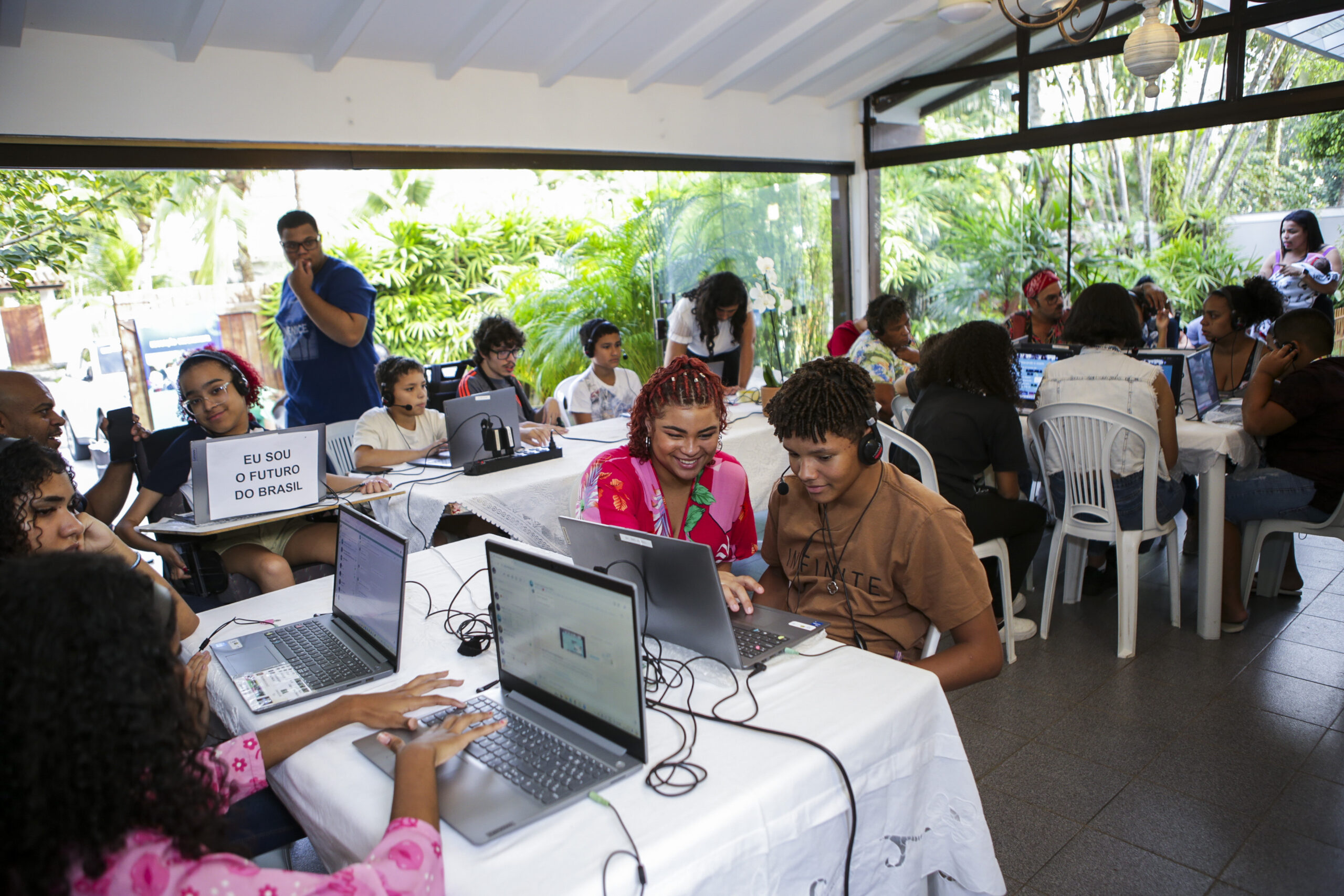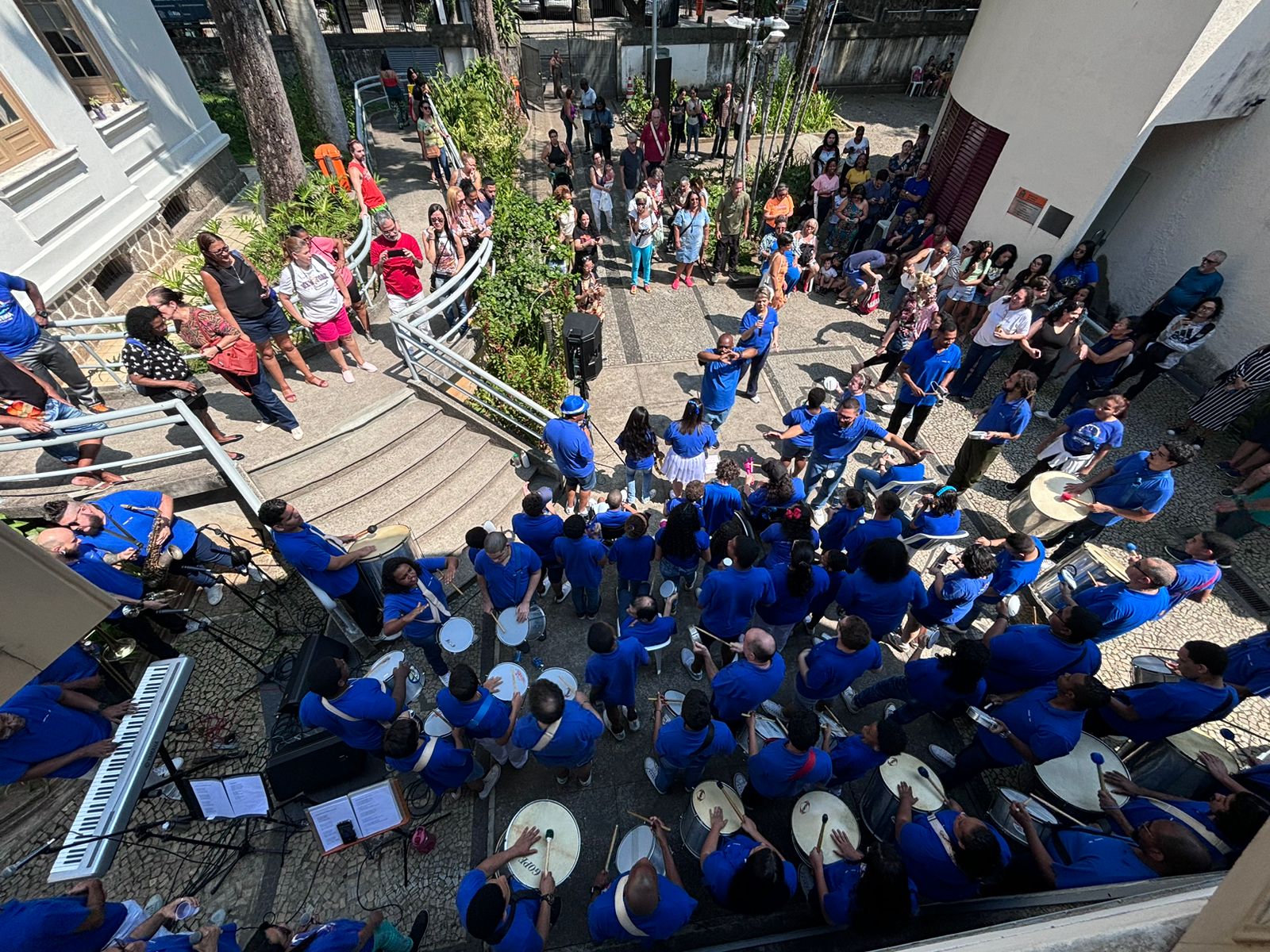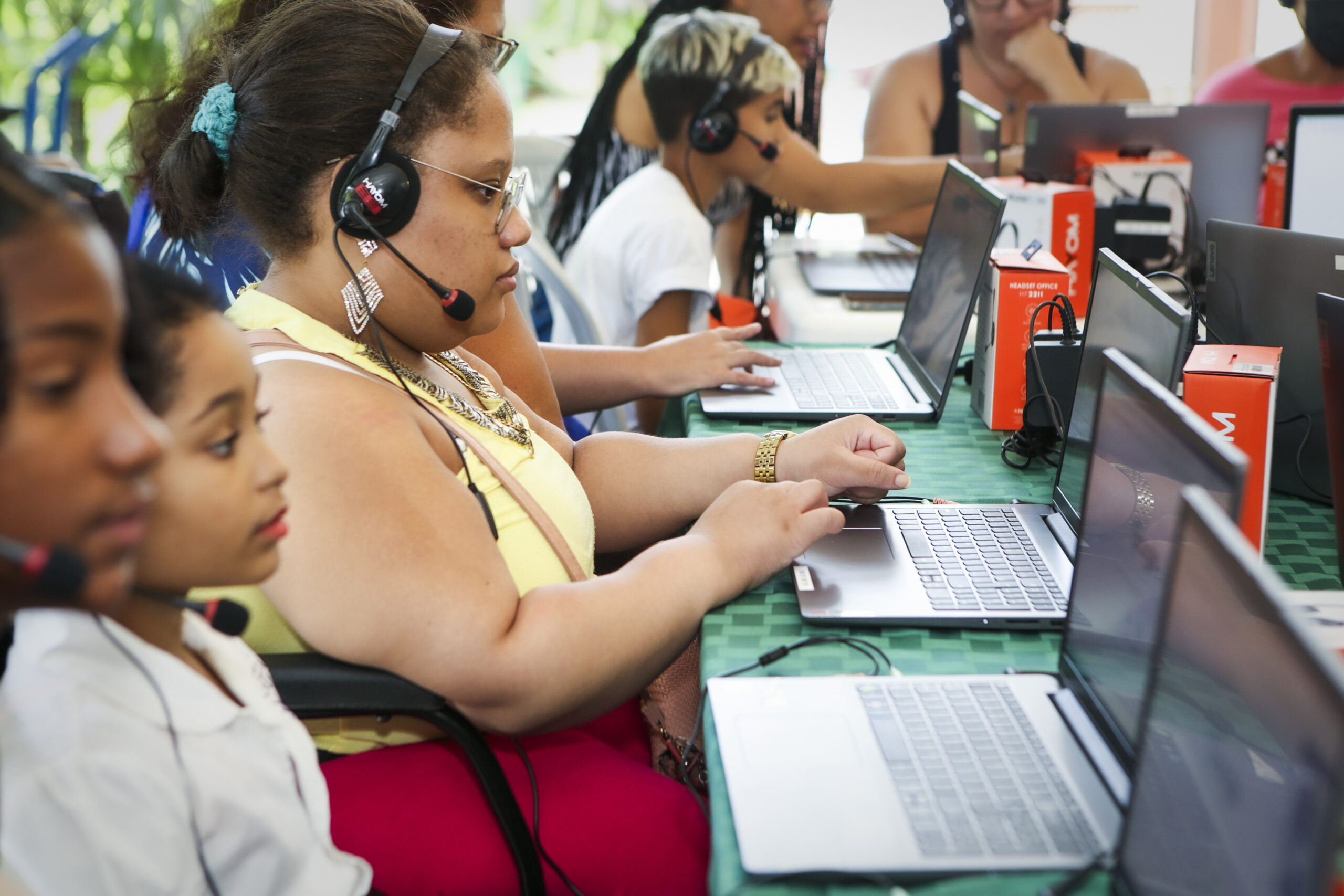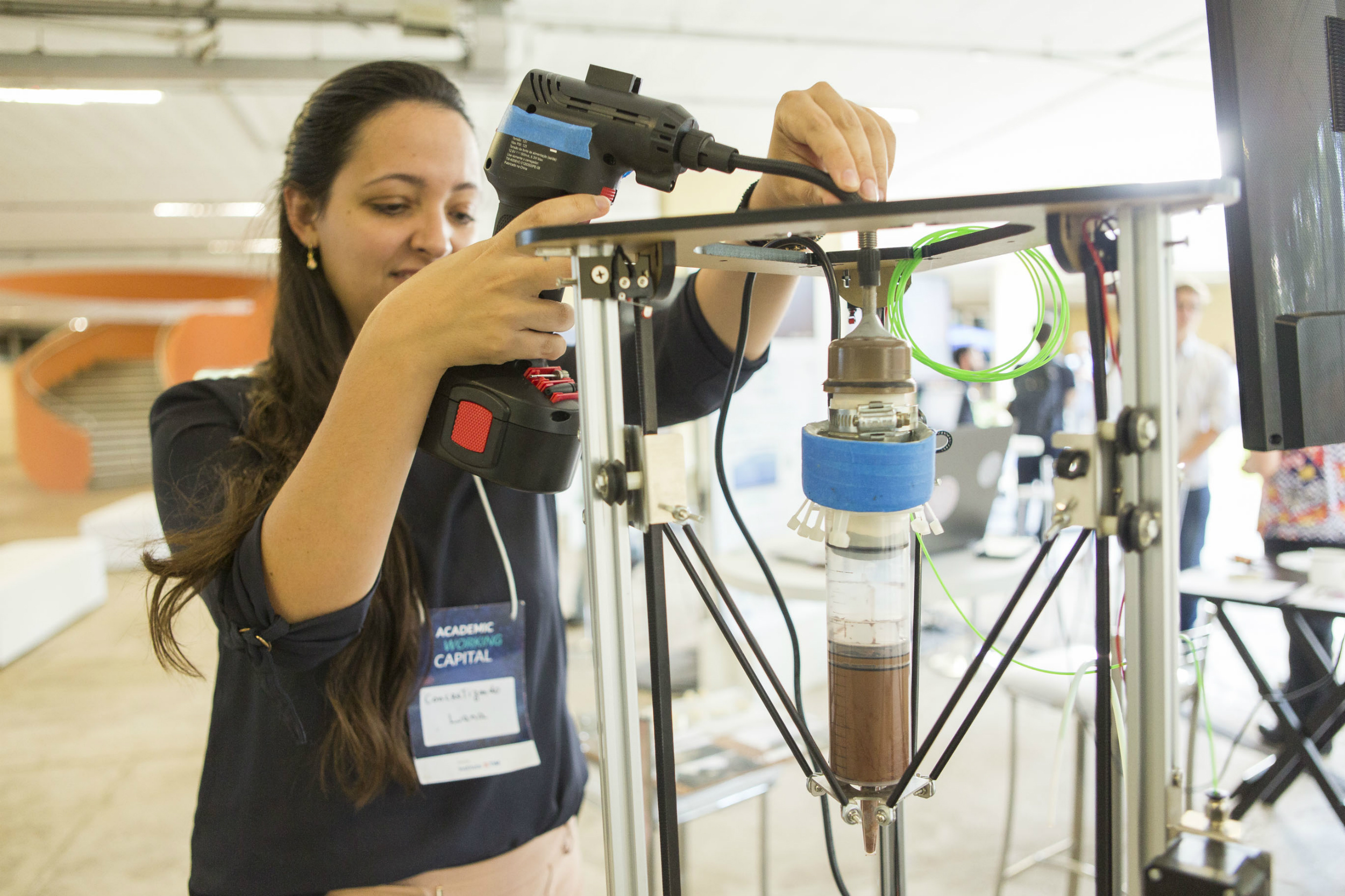
For the sixth time, Instituto TIM participates in the National Week of Science and Technology (SNCT), which is in its 16th edition and takes place between October 21st and 27th. Promoted by the Ministry of Science, Technology, Innovations and Communications, SNCT is the largest and most comprehensive event in Brazil related to the theme. This time, Instituto TIM sponsors SNCT’s main event, which takes place at the Parque da Cidade Exhibition Pavilion in Brasília throughout the week.
The opening ceremony of the Week took place on Monday, 21st, at the Pavilion, and was attended by the Minister of Science, Technology, Innovations and Communications, Marcos Pontes, and the Minister of Health, Luiz Henrique Mandetta, among other authorities. In his speech, Pontes stressed the importance of initiatives such as SNCT for science education. “Sometimes you see people doubting that man has reached the moon and other topics, especially in my sector. This comes from poor science dissemination, so we need to improve science dissemination as well as science teaching in schools,” he said.
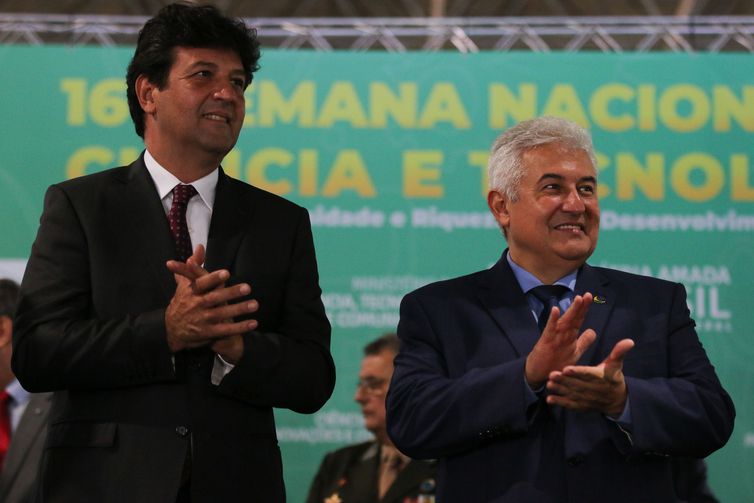
In total, there are 224 institutions in 335 municipalities across the country that will carry out over 6,000 activities of various types, all related to the theme “Bioeconomics: Diversity and Wealth for Sustainable Development.” Some of the issues to be addressed in the 2019 edition are bioeconomics and sustainable cities, bioproducts, ecosystem services and biodiversity valorization, among others.
This is the sixth edition of SNCT in which Instituto TIM is present, having supported the event in 2013, 2014, 2015, 2016 and 2017. In the 2015 edition, Instituto TIM was honored for its role as a promoter of science and technology actions and announced, in partnership with the National Council for Scientific and Technological Development (CNPq), the launch of a notice of support to museums and science and technology centers.
The space of the Parque da Cidade Exhibition Pavilion in Brasília has over 180 exhibitors presenting various innovations and scientific research. The space is open from 9am to 8pm, Monday to Saturday, and from 10am to 8pm on Sunday, with free entry throughout the week.



